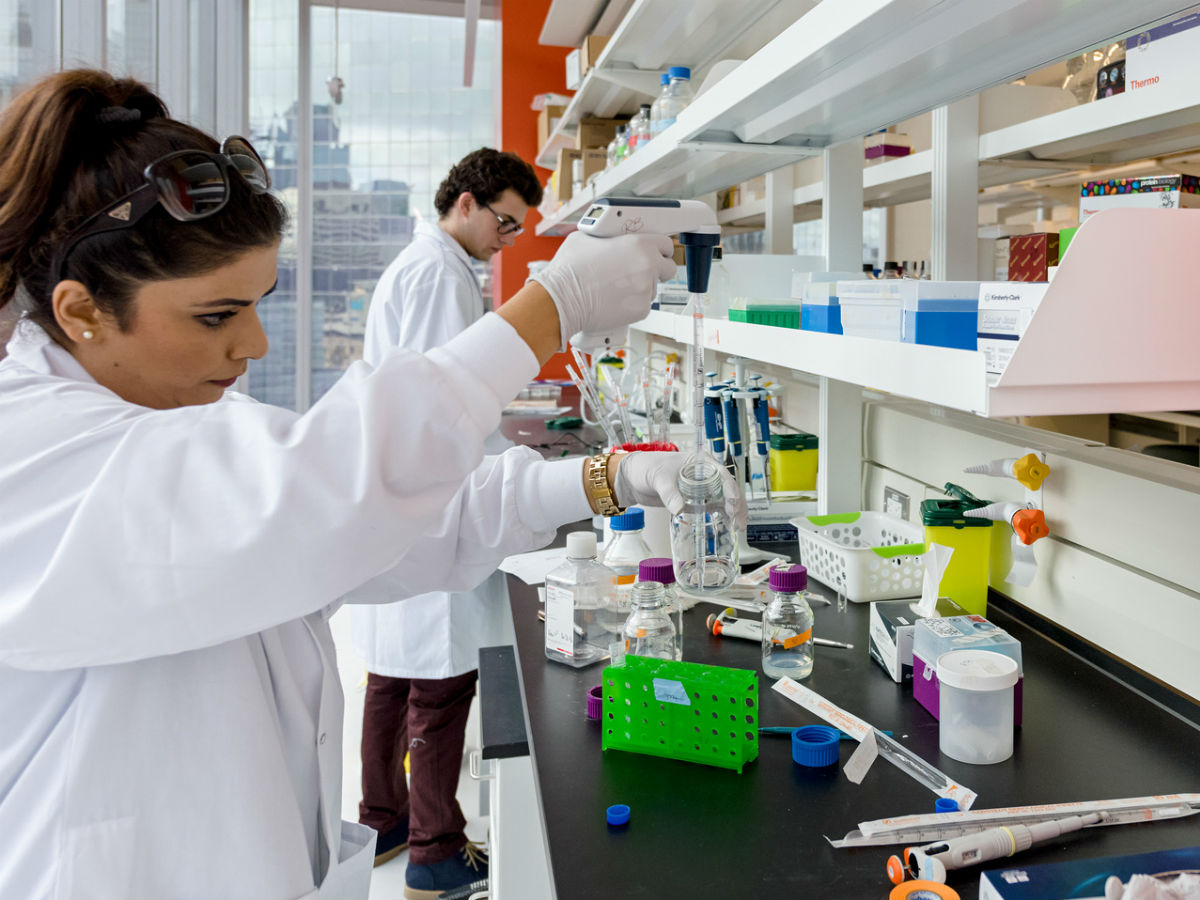New science lab in the city

Ryerson University’s Faculty of Science officially opened its doors in the MaRS Discovery District yesterday, placing Ryerson researchers in the heart of a community focused on the next generation of science and technology research, application and innovative collaboration. Designed by NXL Architects, the 20,000-square-foot state-of-the-art collaborative space houses research teams conducting a spectrum of innovative projects in cell biology, biochemistry, microbiology and environmental toxicology.
“We’re thrilled to provide our researchers with new facilities to support and facilitate their research programs,” said Faculty of Science Dean Imogen R. Coe. “These new facilities will allow collaborative and facilitated research, including more partnership opportunities, all of which are essential to scientific advancement.”
Located on the 11th floor of the MaRS West Tower at 101 College Street, important features of the space include an open concept wet lab with research pods for synergistic programs. The facility has a suite of technologies, instruments and equipment designed to support leading-edge scientific enquiry. In addition, common, shared, core facilities are a feature that is built into the space, allowing for a more efficient utilization of equipment by members of all research labs.
“We’re proud to invest in this space to foster truly incredible research. As a university, our role must be to push boundaries in all scientific fields, and creating this facility gives the next generation of researchers an opportunity to make their mark,” said Ryerson President and Vice-Chancellor Mohamed Lachemi. “Valuable research is done best when different groups can come together to share their expertise, and MaRS facilities will create an ecosystem that will do just that.”
Researchers from the Department of Chemistry and Biology joining this space are:
● Costin Antonescu works in cancer research, focusing on understanding the mechanisms that control cell growth and migration in order to combat cancer.
● Michael Arts studies the critical roles that essential fatty acids (EFA) play in maintaining the health of organisms and how global processes such as climate change, invasive species and contaminants affect the production and distribution of EFA in food webs.
● Roberto Botelho is researching the microscopic organs that make up a cell, organelles. He’s exploring how these tiny organs work to better understand the regulation of the immune system. Unlocking these secrets could mean more effective drugs and treatments for people who are suffering from infectious diseases like tuberculosis and autoimmune diseases like Crohn’s.
● Jeff Fillingham and his team are working to gain a better understanding of human diseases, including chronic diseases such as cancer, and infectious diseases such as malaria.
● Debora Foster’s research team is investigating the molecular basis of pathogenesis of two serious enteric pathogens to eventually develop effective antimicrobial medicines to treat illnesses.
● Joseph McPhee studies bacterial pathogenesis in several microbes associated with the gastrointestinal tract. Currently, his research focuses on adherent-invasive Escherichia coli that are associated with the development of inflammatory bowel disease (IBD) and related diseases to improve treatments.
● Sarah Sabatinos and her team are aiming to discover whether environmental stresses make chemotherapy less effective and cause more cancer mutations.
● Warren Wakarchuk and his team are developing glycan modification technologies to improve therapeutic proteins, as well as tissue engineering to modify human cells for potential treatment of Parkinson’s disease or spinal cord injury.
The Faculty of Science is committed to connected science - a 21st-century approach that forms bonds between disciplines and the real world to solve today’s biggest challenges - and looks forward to partnering with others with similar interests within the MaRS Discovery District such as JLAB, OICR, and Toronto Public Health.